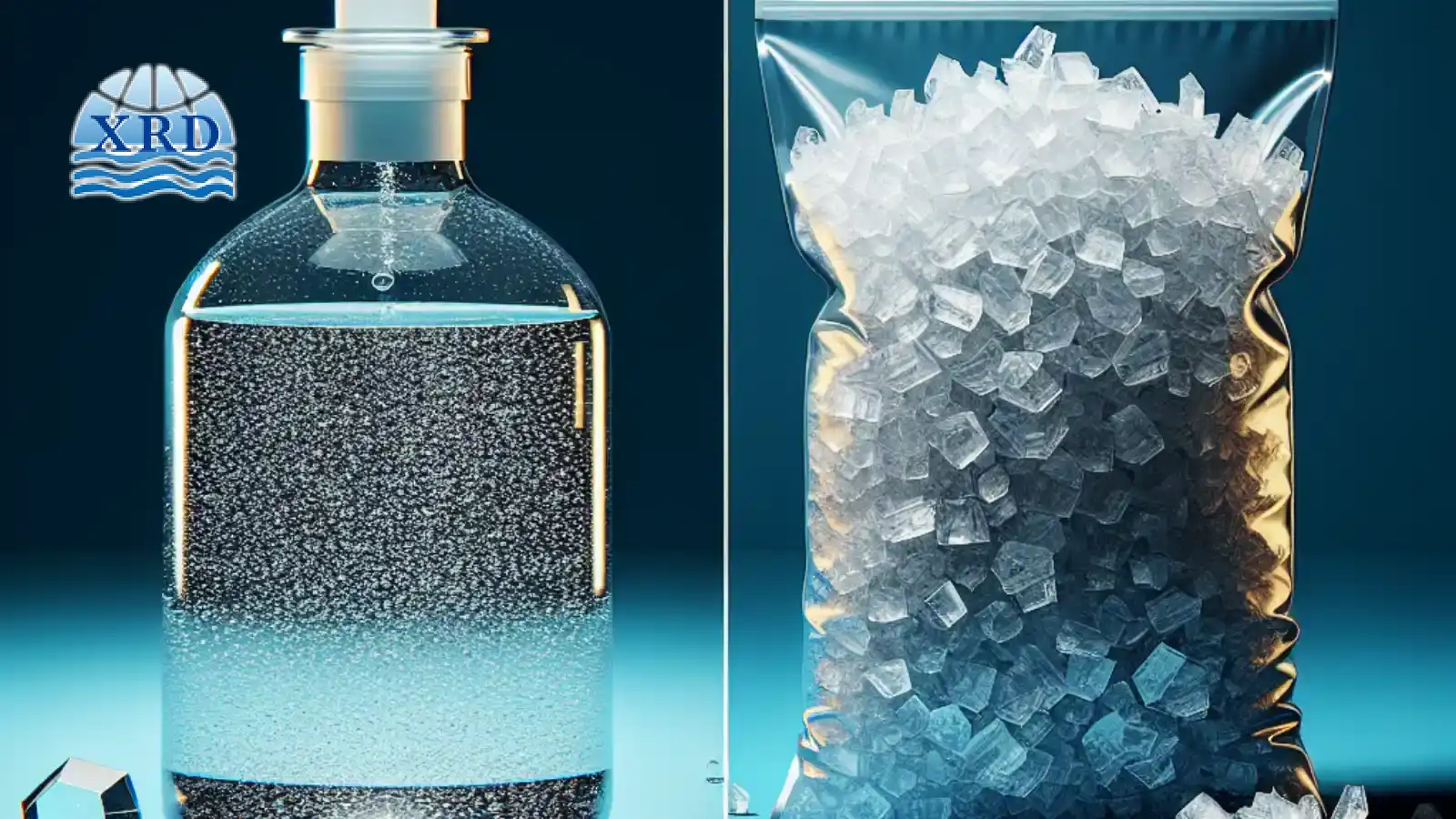Ice Melting Efficiency
Temperature Range:
| Magnesium Chloride | Calcium Chloride |
|---|---|
| Effective to approximately -15°F (-26°C) | Effective to -25°F (-32°C), making it preferable for extreme cold regions |
Speed of Action:
| Magnesium Chloride | Calcium Chloride |
|---|---|
| Melts ice instantly, cutting through 50% in just 15 minutes. | Starts working in 20-25 minutes, fully melting ice in about 45 minutes. |
Residual Effects:
| Magnesium Chloride | Calcium Chloride |
|---|---|
| Prevents refreezing for up to 24 hours by retaining moisture. | Works faster but needs reapplying sooner in heavy snow or rain. |
Material Compatibility and Infrastructure Impact
Concrete Damage Potential:
| Magnesium Chloride | Calcium Chloride |
|---|---|
| Shows approximately 30-40% less concrete scaling than calcium chloride in accelerated weathering tests | Gradually damages concrete, causing spalling, especially in low-quality mixes. |
Metal Corrosion:
- ASTM B117 salt spray tests show:
| Magnesium Chloride | Calcium Chloride |
|---|---|
| Corrosion rates of 8-12 mils per year (mpy) on mild steel | Corrosion rates of 14-18 mpy on mild steel |
- Both benefit significantly from corrosion inhibitor additives
Asphalt Effects:
- Both compounds have minimal direct impact on asphalt integrity
- Magnesium chloride may help reduce freeze-thaw damage by limiting ice penetration into pores
Environmental and Safety Considerations
Vegetation Impact:
| Magnesium Chloride | Calcium Chloride |
|---|---|
| Provides plant nutrients in moderation and causes less leaf burn. | Can raise soil pH over time and cause root damage at high concentrations |
Aquatic Toxicity:
- LC50 (96-hour) tests on fish species show:(Higher values indicate lower toxicity)
| Magnesium Chloride | Calcium Chloride |
|---|---|
| ~4,200 mg/L | ~3,800 mg/L |
Soil Impact:
| Magnesium Chloride | Calcium Chloride |
|---|---|
| May improve soil structure in sodic (high-sodium) soils by facilitating ion exchange | Can contribute to soil compaction in clay-rich soils |
Cost and Operational Factors
Material Costs:
| Magnesium Chloride | Calcium Chloride |
|---|---|
| Typically 10-15% more expensive than calcium chloride per ton | Lower upfront cost but potentially higher lifecycle costs when considering infrastructure damage |
Application Rates:
Recommended application rates for moderate ice conditions (1/4" accumulation):
| Magnesium Chloride | Calcium Chloride |
|---|---|
| 1.5-2 lbs per 100 sq ft | 1-1.5 lbs per 100 sq ft |
Storage and Handling:
- Both require dry storage conditions, but calcium chloride is more prone to caking and requires more rigorous moisture control
Comparative Performance Summary of Magnesium Chloride vs. Calcium Chloride
| Parameter | Magnesium Chloride | Calcium Chloride |
|---|---|---|
| Effective Temp Range | Down to -15°F (-26°C) | Down to -25°F (-32°C) |
| Ice Penetration Time | 20-25 minutes | 10-15 minutes |
| Residual Protection | Up to 24 hours | 12-18 hours |
| Concrete Damage | Moderate | High |
| Corrosion Rate (Steel) | 8-12 mils per year (mpy) | 14-18 mpy |
| Vegetation Impact | Low | Moderate |
| Aquatic Toxicity | Lower | Higher |
| Cost per Ton | $$ | $ |
| Recommended Application | 1.5-2 lbs/100 sq ft | 1-1.5 lbs/100 sq ft |

